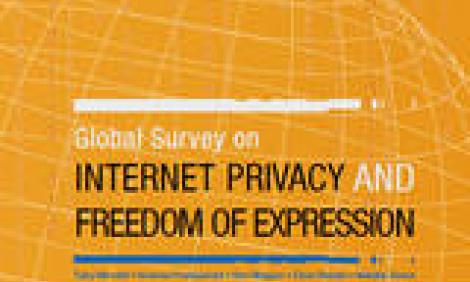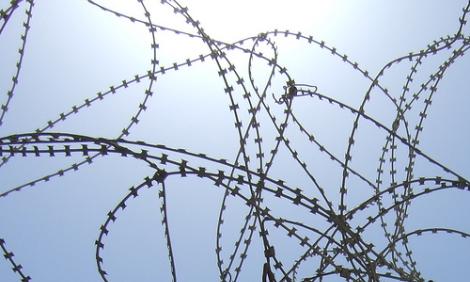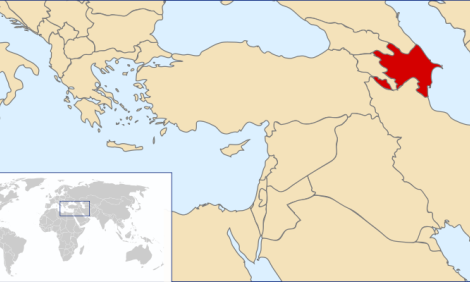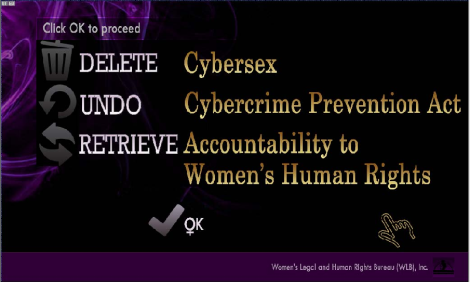
Publication
Global survey on internet privacy and freedom of expression
This publication seeks to identify the relationship between freedom of expression and internet privacy, assessing where they support or compete with each other in different circumstances. The book maps out the issues in the current regulatory landscape of internet privacy from the viewpoint of freedom of expression. It provides an overview of legal protection, self-regulatory guidelines,…
Feminist talk
Censorship walks, a feminist view of the Internet Governance Forum
A big hangar, with a constant voice asking people to wear headphones and talk to each other through the microphones, an internet network that does not allow participants to be online simultaneously, with an average of only one person out of three being able to access full online services and the other two struggling with their different devices to reach out, comment and communicate what is…
Feminist talk
Interview with Arzu Geybullayeva on the internet rights of women in Azerbaijan
Nighat Dad from "Digital Rights Foundation, Pakistan":http://www.digitalrightsfoundation.pk speaks to Arzu Geybullayeva, a regional analyst and a blogger from Azerbaijan. Arzu's areas of interest are regional politics, conflict resolution, and new social media. In their "feminist talk” Nighat asks Arzu about her impressions of the 7th…

Crossing borders : cyberspace and national security
This edition of GenderIT.org explores the online safety of women human rights defenders from the perspective of national security and counter-terrorism. National security often encompasses a variety of security threats, including those in cyberspace. While national security measures are meant to protect the security of a nation and its citizen, in many contexts they serve as a pretext for…

Editorial
Let’s stop our fear of tech leading to misuse of security legislation
I was very happy when I was asked to be guest editor of this edition of GenderIT.org on women human rights defenders (WHRD) and national cyber security policies. This is an important and timely issue for WHRDs because the misuse of counter-terrorism legislation to quell dissent and further marginalise minority voices is on the rise.

In depth
Egypt: Cyber-security as a priority and an integral part of human rights advocacy
GenderIT.org correspondent Mavic Cabrera-Balleza interviews Yara Sallam, Manager of the Women Human Rights Defenders Program at Nazra for Feminist Studies in Egypt, on the challenging reality for women human rights defenders, how they are affected by measures taken by the government in the name of “national security”, and strategies used to address threats to WHRD's cybersecurity.

In depth
Collateral damage of the cyberwar in Syria
Jennifer Radloff and Grady Johnson speak to a Syrian activist in exile about the government increasing tendency to securitize the internet and crack down freedom of expression and freedom to privacy on-line. They also talk how limited access to ICTs, self-censorship due to widespread surveillance and reliance on commercial social networks in combination with a general lack of technical knowledge…

In depth
Building the Capacity of WHRD: the experience of Front Line Defenders
In a context where the debate around digital security tends to be focused on national security and counter-terrorism measures, civil society faces the important challenge of claiming a space for women human rights defenders (WHRD). Margarita Salas of Genderit.org spoke with Wojtek Bogusz and Tara Madden of Front Line Defenders to discuss some of the key challenges they have identified in their…

In depth
Azerbaijan: When online security is synonymous with personal safety
The Seventh Internet Governance Forum will be taking place in Baku, Azerbaijan from 6 to 9 November 2012. GenderIT.org writer Zooey Schock spoke with veteran activist Dr Leyla Yunus about internet freedom and the ability to organise in post-Soviet Asia.

Feminist talk
DELETE, UNDO, RETRIEVE: Statement on the Cybercrime Prevention Act of 2012
The statement developed by the Women's Legal Bureau (WLB) in response to the Cybercrime Bill. WLB highlights the specific women's rights concerns in relation to the bill, in particular warn that the law can be used to further perpetuate violence against women. They are still in the process of gathering support and you are invited to sign on to show your support to the cause.




